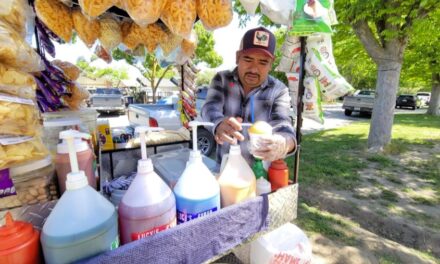BY CATHIE LANCASTER
Contributing Writer
April is National Child Abuse Prevention Month, acknowledging the tens of thousands of American children suffering from abuse and neglect.
These children often enter the Dependency Court, a closed, confidential system that protects the privacy of youth experiencing familial abuse or neglect. But if you could sit in court for a child’s hearing, you would see many people in the room.
At the center of it all is the child, sometimes as young as 5 years old, sitting nervously at a table before the judge. Often, their feet dangle, not long enough to reach the floor. The room is crowded, including the judge up above on their bench and all the court personnel.
You might also see the child’s assigned lawyer and one or both parents, a lawyer representing each parent, a social worker, a lawyer representing the child welfare agency, other relatives, foster parents, and perhaps witnesses.
Children removed from their homes because of neglect or abuse are wards of the state. They have done nothing wrong, but they are victims. For their own safety, these children are taken away from caregivers but also taken from their homes, pets, toys, and all things familiar.
At their hearing, only one person in the courtroom is there solely to represent that child’s best interests: the CASA, or Court Appointed Special Advocate, volunteer.
At CASA of Merced County, we recruit, train, and supervise CASAs to provide one-on-one volunteer advocacy to children. They talk to teachers, social workers, caregivers, doctors, and, most importantly, the children themselves.
A CASA knows what that child needs—not what their biological parents want, not what the court wants, not what their foster parents want, but what is truly in the child’s best interest.
They ask, “What would make you feel safe and secure? How do you feel about your foster family? What is going on with you in school? What do you need?”
Sometimes, a CASA’s job means being a proud audience member for a child’s school play or baseball game, getting them a reading tutor, or making sure they see a doctor or dentist. The CASA genuinely cares about the child, and the child knows it.
When a child is assigned a CASA, they gain a mentor and friend to set them on a better path, avoiding the costly tragedies of homelessness, addiction, and incarceration that so many young people face when they age out of the foster care system.
The CASA ensures the child’s voice is heard in court, school, and the community. Research shows that foster children paired with CASAs are more likely to find safe, permanent homes, succeed in school, have better medical outcomes, and are half as likely to re-enter foster care.
No special training is needed—just a wish to help a vulnerable child. To learn more, go to www.mercedcasa.org.
Although we’re a private, nonprofit organization, CASA of Merced County is providing quasi-governmental services by offering vital support at no cost to our county’s court and social workers.
But private funding is not enough, and we need support from the state to help us reach children in need.
CASA is making the foster care system better and saving the local and state governments millions of dollars. For so many reasons, an investment in CASA is wise and cost-efficient.
The state legislature is considering a 2025–2026 budget request from California CASA that would have an enormous benefit to our own program here in Merced County.
This funding will allow us to recruit and train new volunteers to walk alongside children in foster care while accessing the support we need to do this work each day. We urge you to reach out to your representative and ask for their support.
You can contact Senator Anna Caballero at 209-726-5495, Congressman Adam Gray at 209-226-6880, Assemblymember Esmeralda Soria at 209-726-5465, and Assemblymember Juan Alanis at 209-521-2201. Join CASA in helping thousands of children find their voice.’
— Cathie Lancaster is the Executive Director of CASA of Merced County.



